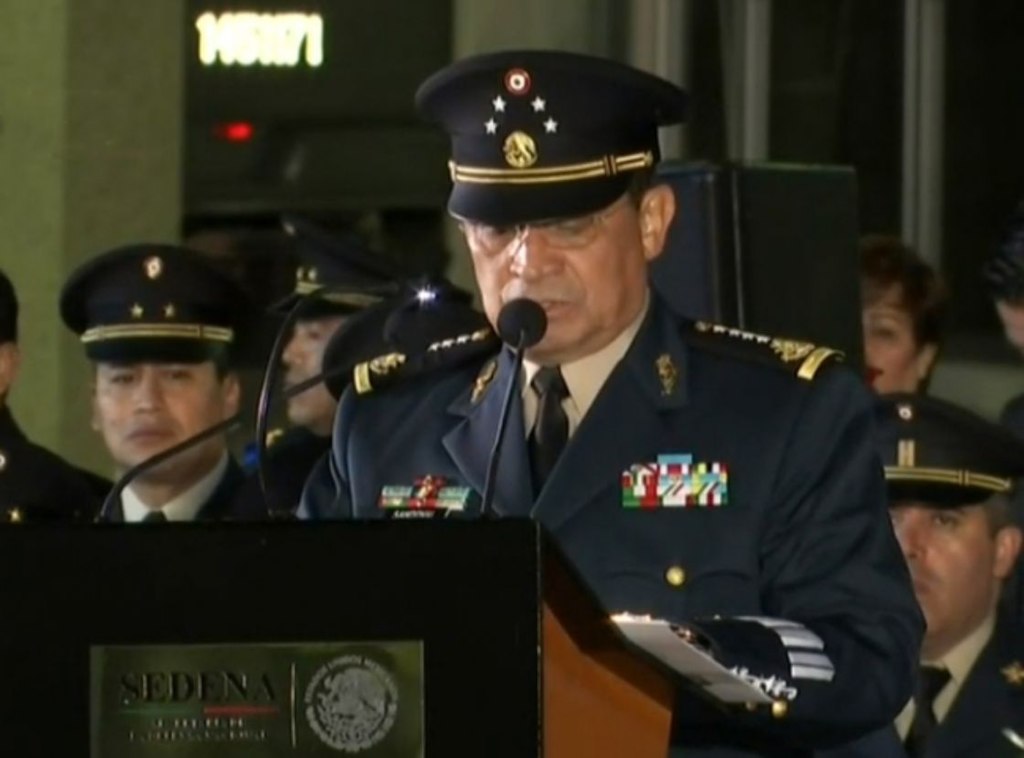
Mexican Secretary of Defense, Luis Crescencio Sandoval, speaks to reporters.
“The information produced…also shows the military’s knowledge of relations between authorities and criminal groups.”
A group of anonymous, self-described social justice advocates called the Guacamayas have carried out a large cyberattack and hack of Latin America’s Defense Ministries. The Guacamayas are a loose network of hackers that aim to expose corruption within the highest echelons of Latin American governments, abuses of Indigenous rights, and the internal governance structures of mining and oil companies. The Guacamayas have engaged in several high-profile hacks of the Colombian and Guatemalan governments before and are thus known to many throughout the region. The Guacamayas are a dispersed group without a known physical location.
The Guacamayas’ recent hack is suspected of exposing upwards of 10 terabytes of information, including information from security services in El Salvador, Chile, and Colombia. However, as BBC News Mundo reports, the portion of the data pertaining to Mexico’s security forces is expected to be the largest—around 6 terabytes of information. While Mexican President Andrés Manuel López Obrador says the Army has nothing to hide, BBC News Mundo says that the leaks have already roiled Mexico’s Defense Department, exposing corruption and links to organized crime groups, as well as a concerning level of advancement of criminal cartels within the country. According to Mexican daily El Universal, the leaks have also revealed connections between criminal organizations and extra-hemispheric actors, such as Russia. In one instance, a Russian national linked to the country’s special forces, trained and provided weapons to a group of self-defense forces in the southern Mexican state of Guerrero. These leaks have the potential to further cause deep concern in Latin America’s defense ministries and security forces for months and years to come. They also demonstrate that despite countries’ best efforts to professionalize their bureaucracies and tackle corruption, many security services throughout the region remain mired in corruption and penetrated by the interests of transnational organized crime groups.
Sources:
“Guacamaya Leaks: 5 revelaciones del hackeo masivo que sufrió el ejército de México (Guacamaya Leaks: 5 revelations of the massive hacking suffered by the Mexican army),” BBC News Mundo (Spanish-language version of the popular British outlet), 6 October 2022. https://www.bbc.com/mundo/noticias-america-latina-63167331
The information produced… also shows the military’s knowledge of relations between authorities and criminal groups. For example, there are reports about possible links between 20 mayors of the state of Guerrero with drug gangs and leaders when the Ayotzinapa students disappeared… [the leaks] exposed that there are files on politicians across the entire political spectrum of the country, from legislators to governors, and their possible links with criminals… there are also reports about corruption and weaknesses in customs and how this facilitates the trafficking of drugs and products through the points of entry and exit of the country. Politicians have sought out the armed forces themselves to connect contractors and service companies in the many important infrastructure projects they control.
“Guacamaya Leaks revela conexión rusa con autodefensas de Guerrero…y de éstas con un cártel (Guacamaya Leaks reveal Russian connection with Guerrero self-defense groups…and of with a cartel),” El Universal (one of Mexico’s oldest and most read dailies), 4 October 2022. https://www.eluniversal.com.mx/nacion/guacamaya-leaks-revela-conexion-rusa-con-autodefensas-de-guerrero-y-de-estos-con-un-cartel
This self-defense group emerged in 2017 and is located in one of the areas with the highest poppy production in the country… Bogdanov Rustam, a Russian national, is identified as an instructor… he is a former operator of the Russian Special Forces Unit and the Antiterrorism Unit… The document also specifies that the purpose of this course for the self-defense groups is to ‘train them to face their antagonists and control their areas of presence.’
Image Information:
Image: Mexican Secretary of Defense, Luis Crescencio Sandoval, speaks to reporters.
Source: https://commons.wikimedia.org/wiki/File:Luis_cresencio_sandoval_sedena_notimex.jpg_1934679704.jpg
Attribution: CCA – 4.0
